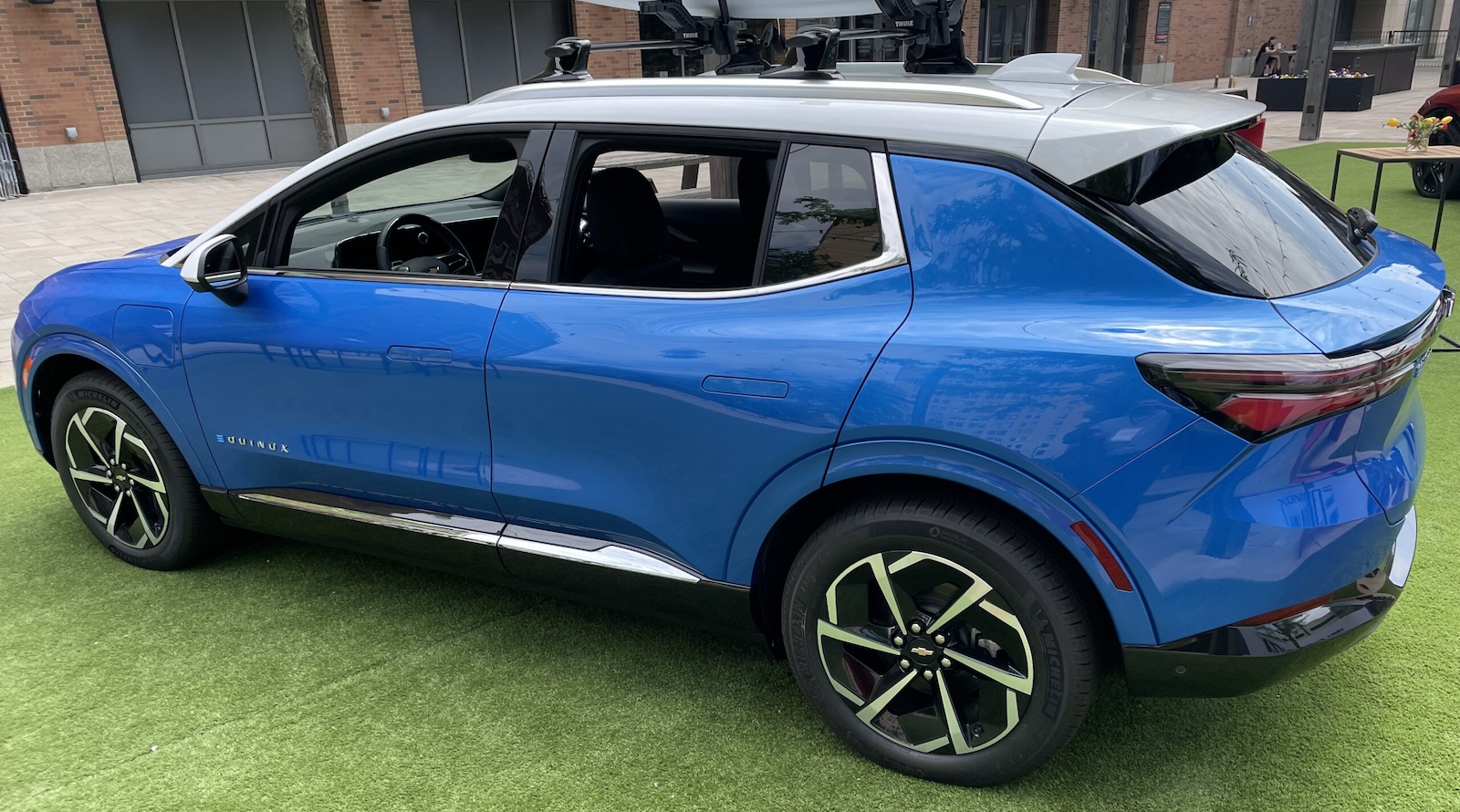Internal combustion engine and diesel engine vehicles use motor oil, and unfortunately, many such vehicles leak their oil onto driveways, garage floors, roads, highways, interstates, and parking lots. They can also leak oil into dirt roads, gravel roads, and off-road.
One city in Washington, Kirkland, estimates that every year about 7 million quarts of leaked motor oil and other petroleum products wind up in Puget Sound.
On a national level, of course that total is far greater: “Used motor oil is the largest single source of oil pollution in our lakes, streams and rivers. Americans spill 180 million gallons of used oil each year into our water.”
Online, there are some false claims that electric vehicles leak oil too. Well, no, they don’t have motor oil so they can’t leak it. The false claim is that because electric vehicles have a little transmission fluid that can leak, that they too leak oil. But, transmission fluid is not motor oil.
Also, electric vehicle transmission fluid might only need to be replaced at about 100,000 miles or if there is an issue. A Recurrent article mentions that some EV manufacturers do not require transmission fluid changes, while Hyundai and Kia use 80,000 miles as a threshold.
Conventional motor oil needs to be changed about every 3,000-5000 miles and synthetics about 5,000-10,000, depending on the type and age of the vehicle. That’s obviously much more than what is required for EV transmission fluid, which again, is not the same as ICE motor oil.
Adding to the damage and destruction caused by ICE motor oil is the fact that there is also a tremendous amount spilled upstream of the actual vehicles by the fossil fuel industry.
“Oil spills are more common than you might think, and they happen in many different ways. Thousands of oil spills occur in U.S. waters each year. Most of these spills are small, for example when oil spills while refueling a ship. But these spills can still cause damage, especially if they happen in sensitive environments, like beaches, mangroves, and wetlands.
Large oil spills are major, dangerous disasters. These tend to happen when pipelines break, big oil tanker ships sink, or drilling operations go wrong. Consequences to ecosystems and economies can be felt for decades following a large oil spill.”
The point of mentioning the larger fossil fuel industry spills is not to confuse the millions of small motor oil leaks that happen pretty much constantly with them. But, some readers might think it’s only small motor oil leaks from ICE vehicles that happen, when, in fact, it is both types: small motor oil leaks and larger spills.
Used motor oil from internal combustion engines has also been linked to cancer in humans.
“Used mineral-based engine oil is on the Proposition 65 list under the entry for “soot, tars, and mineral oils (untreated and mildly treated oils and used engine oils) because it can cause cancer. Exposure to used engine oil may increase the risk of cancer.”
The title of this article is “Another Electric Vehicle Benefit…” because electric vehicles actually have many benefits that gas and diesel vehicles no not.

Sign up for CleanTechnica’s Weekly Substack for Zach and Scott’s in-depth analyses and high level summaries, sign up for our daily newsletter, and follow us on Google News!


Whether you have solar power or not, please complete our latest solar power survey.
Have a tip for CleanTechnica? Want to advertise? Want to suggest a guest for our CleanTech Talk podcast? Contact us here.
Sign up for our daily newsletter for 15 new cleantech stories a day. Or sign up for our weekly one on top stories of the week if daily is too frequent.
CleanTechnica uses affiliate links. See our policy here.
CleanTechnica’s Comment Policy

